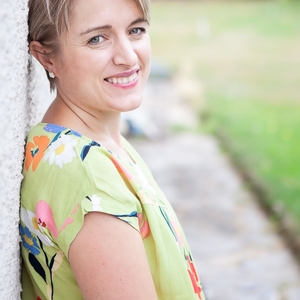You are viewing your 1 free article this month. Login to read more articles.
To tag or not to tag—when author feedback gets personal
Would you walk up to an author at a book event, or on the street, and tell them how much you hated their book? No? But by creating a public work of art, surely authors are opening themselves up to scrutiny and should be prepared to take the rough with the smooth?
The idea of directly confronting an author with negative feedback may seem ridiculous—but it’s exactly the subject of a debate raging in social media. Many will have stumbled across the Twitter thread started by American sci-fi author Elizabeth Bear last week, in which she described any author tagging as “rude”. As with many controversial opinions on Twitter, this sparked immediate attention—was it wrong to tag authors in reviews at all? Or just the negative ones? Do all authors hate being tagged? Is it part of the job and a useful chance to get feedback, or just another sneaky form of cyber-bullying?
According to Bear, her original comment was slightly misinterpreted: “Of course, nobody minds being told, ‘I love your work!’” she explains. “The problem arises when an artist is placed in a position of having to seem to ignore, to endorse or to publicly disagree with criticism (even positive).” In other words, the real issue for Bear is having your hand forced—being baited not just to read reviews but to engage, even if by omission. In times gone by, responding to reviews was a rare phenomenon, save the odd newspaper-letters-spat. But isn’t simply being present on social media an invitation to engage?
Many authors on Twitter were quick to defend the bloggers and reviewers who—after all—bring much-needed attention to new releases, with several expressing a desire to be tagged in reviews no matter their content. “As an author, I love to hear readers’ opinions, good, bad or indifferent, so do like to be tagged,” explains UK thriller writer Matt Hilton.
Others, like author Dawn Goodwin who pens psychological thrillers, felt being made aware of negative feedback was a useful way to improve their work going forward. “As an author, I like being tagged, opening a discussion with a reader, learning more about them. I think it makes me a better writer and I’m always appreciative of someone taking the time to engage with me,” she explains.
This willingness to engage seems in step with a publishing landscape where some writers are publicly co-writing with their readers on platforms such as Wattpad, or beta-testing drafts online. So should authors simply develop a thick skin and an open approach to unsolicited feedback?
Unsurprisingly however, many authors report that although they enjoy interaction with reviewers online, they would prefer only to be tagged in the positive write-ups. “I love hearing from readers,” says numer one Kindle bestselling author Jenny Blackhurst. “But I woke up on a Sunday morning once to a notification that someone hated my book—they were really slating it on Facebook. It felt like they’d come into my bedroom to tell me I was rubbish the minute I woke up!” Margaret Kirk, a Scottish crime writer, agrees. “I do think tagging a writer to say you hated their book is quite rude. I mean, translate it to real life—would you run after someone in the street to say, ‘hey, I hate your hair?’”
Many book bloggers also agreed that writing a negative review was one thing but tagging an author in that review was cruel and unnecessary. Lainy Swanson, of the Always Reading book blog, will only tag an author if her review is positive. She found Bear’s initial comments knocked her confidence, but felt the resulting outpouring of positivity towards bloggers from authors was “awesome”.
Some reviewers went further by electing only to write reviews when they have enjoyed a book. Book blogger Anne Cater of "Random Things Through my Letterbox" says: “I don’t post negative reviews as I started my blog to share my love for books that I’ve enjoyed. I’m not a critic, and lots of people may love a book that I don’t enjoy.”
But before we slate authors for being precious or online reviewers for being overly cautious, it might be worth reminding ourselves of a bit of basic behavioural science. As humans, we suffer from "negativity bias"—meaning that a one-star review can seem to eclipse all the positive feedback a book has received. According to clinical psychologist Jonathan Pointer of Therapy Sanctuary, this is due to our evolving in an environment “where for our own survival it has been essential that we focus on any potential threat". While our environment may have changed, our brains have yet to catch up, meaning we still “still tend to focus on problems rather than the things that are working well for us". This makes Twitter a potential minefield for even the most Teflon-coated writer’s soul, particularly those who are new to the game, or suffer from mental health problems
So an honest review is welcomed by the majority of authors; but tagging them in a bad one is probably a little mean-spirited. After all, if they’re the sort to want to read or engage with vigorous feedback, it probably won’t be hard to find.
Gillian Harvey is a freelance writer and author. Her debut novel Everything is Fine will be published in May 2020 by Orion.














